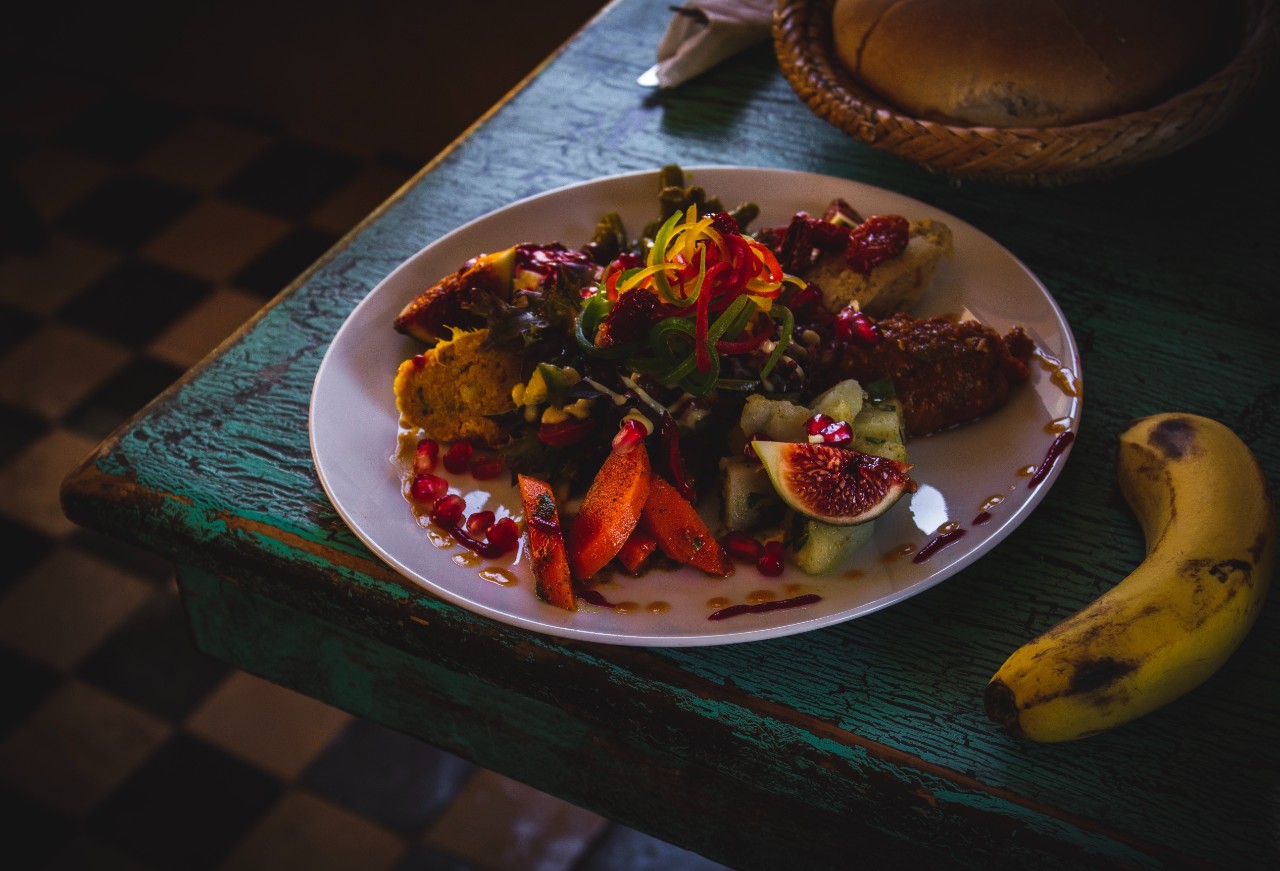Nutrition advice for expectant mothers
Nutrition during pregnancy is important for the health of both the unborn child and expectant mother. What does an ideal meal plan look like?

Which foods and drinks should pregnant women prefer? Which ones to avoid? Recommendations and tips for a balanced diet during pregnancy.
Drinks
Drink around 1.5 to 2 litres of still or sparking mineral water or unsweetened herbal or fruit tea a day.
Meals
The standard nutritional recommendations apply during pregnancy, too – eat fresh vegetables and fruit, complete carbohydrates, sufficient protein and healthy fats.
However, it’s better to eat several smaller meals instead of a few big meals. This takes the pressure off the stomach and helps ease symptoms such as morning sickness. It is recommended that mums-to-be eat three main meals and two snacks.
-
Healthy snacks
- Apples
- Yoghurt, low-fat quark with fruit, milkshake, Ovomaltine
- Rice or corn crackers
- Raw, well-washed vegetables with a quark dip
- Unsalted nuts
- Wholegrain crackers or rolls with cheese or cooked ham
- Apples
-
Sweet and savoury snacks
Treat yourself to one portion a day (e.g. 1 row of chocolate or 30 g of crisps).
-
Chocolate, pizzas, etc.
Enjoy in moderation!
Nutrients and supplements
Talk to your doctor about nutrients you should be taking during pregnancy. The most important nutrients are listed here:
- Folic acid and other vitamins: Until the 3rd month of your pregnancy, you’ll need 800 mg of this vital B-group vitamin per day. Folic acid can be found in wholegrain products, green leafy vegetables, eggs, fish, milk and many fruits. You should also take 0.4 mg of folic acid a day in tablet form – at least until the end of the 12th week of pregnancy. Ask your doctor if you need to take other vitamin supplements.
- Iron: You’ll need 30 mg a day. Iron can be found in meat, pulses and vegetables such as spinach, broccoli, beetroot, etc.
- Iodine: You’ll need 230 µg per day during pregnancy and up to 260 µg per day while breastfeeding, because you’ll be supplying two thyroid glands – yours and your baby’s. Iodine can be found in iodised salt and seafood.
- Calcium: You’ll need between 1,000 and 1,200 mg a day. Calcium can be found in mineral water, milk, dairy products, herbs and vegetables.
Foods to be wary of
- Fish: predatory fish in particular contain high levels of toxins such as mercury and dioxins, which are harmful to the foetus. You should therefore avoid eating fish such as Baltic salmon and herring, marlin and swordfish. Fresh tuna should not be eaten more than once a week.
- Wild mushrooms: these can also contain toxins such as mercury and should be avoided during pregnancy.
- Coffee, green and black tea: Caffeine can restrict the foetus’ absorption of iron, but there’s no harm in drinking one or two cups of coffee or four cups of black or green tea a day.
- Game: venison and wild boar can contain lead, which, in the worst case, can damage your child’s nervous system.
- Liver: excessive vitamin A can cause foetal malformations. Therefore, expectant mothers should avoid eating liver until the 4th month of pregnancy.
Black list (listeria and toxoplasmosis)
Infections with the pathogen toxoplasmosis (parasite) and the bacterial disease listeria usually go unnoticed in adults. However, these can cause considerable harm to the unborn child or lead to a miscarriage. You should therefore avoid:
- Undercooked or raw meat (e.g. salami, cold cured ham, carpaccio, rare steak)
- Smoked fish
- Raw fish
- Raw eggs (e.g. in tiramisu and mayonnaise)
- Unpasteurised milk
- Cheese made from unpasteurised milk, soft and semi-hard cheeses (e.g. feta, mozzarella, Camembert)
- Packaged mixed salads
Diet during pregnancy
because their bodies work more efficiently and make better use of the energy (calories) during pregnancy. From the 4th month of pregnancy, mums-to-be need just 250 calories more a day, increasing to an extra 500 calories from the 7th month. The latter is equivalent, for example, to two slices of wholemeal bread and a piece of cheese.


